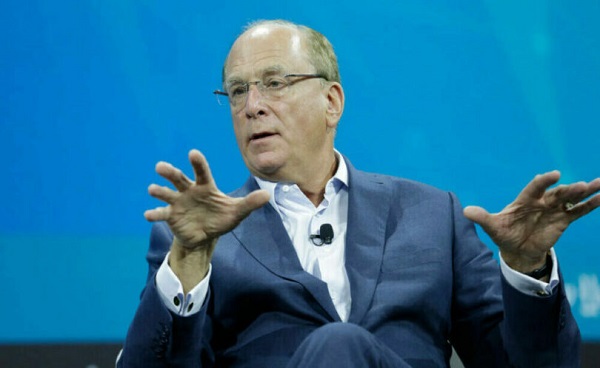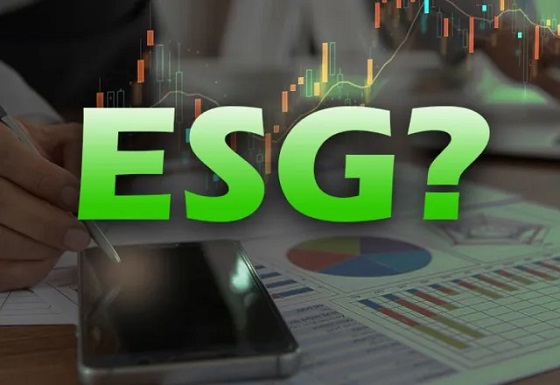ESG
New Brunswick warned to lift ban on low-risk activities, such as walking, hiking, and fishing, on Crown land

The Justice Centre for Constitutional Freedoms announces that a legal warning letter has been sent to Premier of New Brunswick Susan Holt and Minister of Natural Resources and Energy Development John Herron, urging them to reverse their province-wide ban on public access to Crown land.
The universal ban on access to nature across the province applies to low-risk activities such as hiking, cycling, fishing, or even walking a dog in order to prevent forest fires, according to the Premier and Minister.
Constitutional lawyer Allison Pejovic states that these sweeping restrictions violate Canadians’ right to liberty – protected by section 7 of the Canadian Charter of Rights and Freedoms.
Ms. Pejovic writes that “walking through the woods and fishing do not pose a risk of starting fires. Punishing Canadians by restricting their freedom to roam and enjoy nature is disproportionate and not rationally connected to preventing forest fires.”
Less restrictive measures, such as banning smoking and recreational fires, increasing patrols on Crown land, and improving forest management, could address legitimate fire concerns without violating citizens’ liberty.
The letter cautions that if the province proceeds with “overbroad, arbitrary, and grossly disproportionate restrictions,” the province could face a legal challenge and be brought to heel in court. Ms. Pejovic remarks that “treating people as the problem rather than targeting actions that actually create fire risks shows a serious and concerning disregard for human rights and individual liberty.”
The letter urges the province to immediately remove the ban on harmless recreational activities on Crown land.
Business
BlackRock CEO Larry Fink is new co-chair of WEF, finds no misconduct in Klaus Schwab

From LifeSiteNews
In what appears to be the most obvious conflict of interest in history, the World Economic Forum which was formed to infiltrate governments and influence government decisions has elected two of the world’s largest hedge fund managers as co-chairs.
The World Economic Forum (WEF) has elected BlackRock CEO Larry Fink and Roche Holding vice-chair Andre Hoffmann to serve as interim co-chairs of its board.
Last Friday, the WEF announced that the investigation into Klaus Schwab had found no misconduct by its former chairman and founder. In the same press release, the globalist organization also announced Fink and Hoffmann as new interim leaders.
Schwab was under investigation in April this year after a whistleblower alleged financial impropriety and behavioral issues. The 87-year-old Schwab had already resigned from his position as chairman of the board shortly before the investigation was launched.
“Minor irregularities, stemming from blurred lines between personal contributions and Forum operations, reflect deep commitment rather than intent of misconduct,” the WEF stated in regard to the allegations made against Klaus Schwab and his wife Hilde.
WATCH: Dark origin and agenda of Klaus Schwab’s World Economic Forum
“Following a thorough review of all facts, the Board has concluded that, while the organization must evolve toward a more institutional model, there is no evidence of material wrongdoing by Klaus Schwab,” the organization concluded.
Larry Fink is no stranger to the critics of the globalist “Great Reset” agenda spearheaded by Schwab. He founded BlackRock, the largest asset manager in the world, presiding over $10 trillion in assets, more than any country except the U.S. and China.
He announced in 2017 that he intends to use the enormous power he wields to engage in “forcing behaviors” in support of diversity and inclusion – and to promote the ESG agenda endorsed by the World Economic Forum. Fink, at the time, even threatened any companies who refuse to submit to his vision with punitive economic measures.
“You have to force behaviors. If you don’t force behaviors, whether it’s gender or race or just any way you want to say the composition of your team, you’re going to be impacted. That not just recruiting, it’s development,” Fink said. “We’re gonna have to force change.”
READ: BlackRock CEO Larry Fink: Understanding the man who invented woke capitalism
Over the last several years, the WEF’s annual meeting of political and business elites in the Swiss mountain town of Davos has become synonymous with globalism. Even the mainstream news outlet Reuters wrote that the gathering “has in recent years drawn criticism from opponents on both left and right as an elitist talking shop detached from lives of ordinary people.”
Business
ESG: The Use of Non-Financial Metrics by the Investment Industry is a Lawsuit Waiting to Happen

-

 Business16 hours ago
Business16 hours agoOver $2B California Solar Plant Built To Last, Now Closing Over Inefficiency
-

 espionage2 days ago
espionage2 days agoCanada Under Siege: Sparking a National Dialogue on Security and Corruption
-

 Business15 hours ago
Business15 hours agoWEF has a plan to overhaul the global financial system by monetizing nature
-

 Business17 hours ago
Business17 hours agoThe Leaked Conversation at the heart of the federal Gun Buyback Boondoggle
-

 Business2 days ago
Business2 days agoGoogle Admits Biden White House Pressured Content Removal, Promises to Restore Banned YouTube Accounts
-

 Opinion16 hours ago
Opinion16 hours agoThe City of Red Deer’s financial mess – KPMG report outlines failure of council to control spending
-

 International2 days ago
International2 days agoTrump says he won’t back down on Antifa terrorism designation
-

 Business2 days ago
Business2 days agoDepartment of Energy returning $13B climate agenda funding to taxpayers






